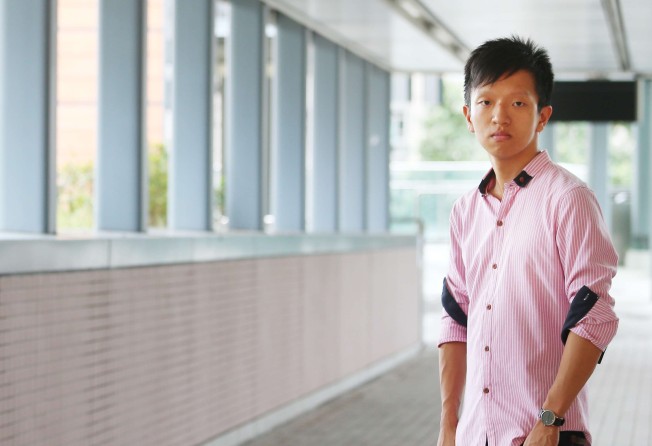
Focus on Hong Kong students’ mental health – call for more awareness and assistance
22 student suicides in the past academic year in Hong Kong have put mental health issues under the spotlight, with calls to coax sufferers out of the shadows and offer them appropriate help

The past academic year saw 22 students commit suicide, eight of whom were at university. Even more worrying is the fact that this could be just the tip of the iceberg as mental illness affects a far greater number of students. In the 2015/16 academic year, 920 students at Chinese University of Hong Kong sought help from the school’s counselling team, and that number does not even reflect the full scale of depression or other anxiety disorders as many more cases are not detected.
The alarming trend begs the question, how much do we know about mental illness?
The answer, it seems, is not much.
In fact, the common misconceptions society has about mental disorders – that only the weak are susceptible, or that it’s something to be ashamed of – can be what is keeping us sick.
One problem universities found when tackling the issue is the difficulty of identifying students who are emotionally disturbed. While some are reluctant to seek help because of stigma, many more are not aware of having a problem.
On the outside, Alex Leung Kwun-yat appears to be an exemplary and high-achieving student. The 23-year-old studies law at the University of Hong Kong and leads the school’s English debating team, participating in regional and international competitions. But unbeknownst to many, he spent most of his third year of studies buckling under pressure.
Under mounting workload and stress, he began skipping class and avoided any social interactions. “I didn’t dare go to school – I just hid in my dorm room all the time,” says Leung, who was so scared of running into people then, he would not shower for days at a time nor visit the cafeteria or pantry when he felt hungry.
He also turned off his mobile data to prevent anyone from finding him. “I didn’t want to lose face or be looked down upon by others so I didn’t tell anyone. Even my roommate and my closest friends did not know about my situation,” says Leung.
At one point, he started developing suicidal thoughts. Yet it never occurred to Leung that he may be suffering from depression. Instead, he was overwhelmed by guilt for not being able to get a grip.
It wasn’t until the school called his home to find out why he missed the final exam, that his parents found out about his situation and finally took him to see a psychiatrist.

Another student, Kammy Lee did not suspect she was suffering from mental illness, even though she began exhibiting signs of depression at high school.
“I was in despair. Even if I felt calm one night, I could wake up the next day feeling very miserable for no apparent reason,” says Lee.
But since Lee did not display other common symptoms such as academic deterioration and inability to work, she presumed her situation was a natural part of growing up.
“I didn’t seek help partly because I did not understand the illness, and partly because I mistakenly thought that only weak people would become mentally ill,” says Lee, who only started her journey towards recovery after five years of battling depression.

Winnie Mak Wing-sze, a professor in the Department of Psychology at Chinese University, says a lot of people do not realise that depression manifests itself differently in each person and more often than not, cannot be attributed to simple causes such as study issues, family or relationship problems.
“News reports on student suicides often specify several reasons to explain why people with mental illness chose that path... but in reality, it’s actually very difficult to trace it back to a specific cause, and it is never simply because of a single problem,” says Mak.
An even greater problem about news coverage of suicides is that they can affect those who are emotionally disturbed and reading them could be the final push for those who already have suicidal tendencies. When seven students killed themselves within 10 days in March, experts made desperate calls urging people to stop sharing the news on social media.
This resonates deeply with Lee, who once tried to commit suicide after news of her high school teacher killing herself made headlines across town. “It affected me deeply because it was very sensational and I was already emotionally unstable at the time. I identified with the victim and thought that her method was actually acceptable,” says Lee. “The articles, especially if they include a detailed description of the suicide method, can be very damaging for those who are already on the edge.
“There are rules the media should abide by.I’m not saying you cannot report it, but it really matters how you do it because we’re talking about lives here. You will affect someone’s life.”
To combat the stigma surrounding suicide and promote awareness about mental health, Professor Winnie Mak Wing-sze established StoryTaler earlier this year. It is a group of psychology students and recent graduates who have been through depression.
Lee, who now works as a peer support worker in a local non-profit and shares her own experience to help others going through the same thing, is also part of the group.
“We use phrases such as people in recovery, people with lived experience or people with mental illness. But we will never call them the mentally ill ... because we don’t want to objectify them,” Mak explains. “They are people, not a sickness or a set of symptoms.”
The group is active on social media, they clarify myths surrounding mental illnesses, share their personal thoughts and give tips on how to look out for those in distress. For example, they recommend practising mindful reading, validating others’ emotions by mirroring, and avoiding giving instant suggestions. All of this boils down to an important skill that many overlook: listening.
“It’s not a rule-based reasoning, what you can or cannot say. But it’s really important whether the person is sincere in trying to communicate and understand,” says Mak.
“Sometimes, people voicing their well-intended concerns can be most deadly,” says Leung, recalling how people’s queries about how he was doing forced him deeper into hiding.
“I am not saying you should not care for them. But it’s better to avoid clichéd comments such as, ‘cheer up, don’t be upset’. Skilful caring and non-judgmental companionship are much more effective.”
Leung has, over the past years, experienced several more relapses and taken a year off to allow himself to recover. While he is glad that throughout the process, he has had supportive family and friends who were by his side, he acknowledges that many do not have this privilege.
He’s therefore trying to help others who are still finding their way.
“Anyone can have a mental illness, it’s just like catching a cold. And we need to create an environment where those who really find themselves in a bad emotional condition won’t panic or even choose to take their own lives,” says Leung.
“If we have more personal sharing and more education on mental health, then one day if someone does find themselves in that situation, they will know that it’s OK to seek help.”
Chinese University is revolutionising its mental health care to create such an environment.
The institution stepped up its counselling services after the fifth suicide within the academic year, increasing the number of counsellors and setting up a midnight support hotline. But the school is doing more over the summer to prevent more tragedies.
Freshmen entering the university this autumn will go through a mandatory section on mental health care during orientation and the school is training its entire staff, including professors, tutors and wardens in residence hostels, to equip them with the skills to identify students in distress and follow-up with their condition.
The school is also transforming a building into a mental wellness centre. Situated in the middle of the campus, the centre is designed to be welcoming so students are not just coming to meet the counsellors, but it’s also a place for them to lie down, relax and compose themselves.

When we talk about mental health care, it’s often about how students should address their own emotional problems and this makes it seem like emotional problems constitute a sickness,” says Professor Dennis Ng Kei-pui, an associate vice-president at the university.
“But it’s not just about whether the student has a mental illness or not. Mental health care is also about helping students lead a flourishing life, and this involves other aspects of school life, such as time and stress management and lifestyle.”
While people tend to think of mental illness as an either-or issue, it is actually more of a continuum, which ranges from languishing to flourishing and most people are placed in the middle, where they are moderately mentally healthy.
“These self-care skills are not just for their university years,” says Ng. “As they enter society, they will face more pressure. We want to prepare them by teaching them how they can manage their stress and strengthen their resilience,” says Ng.
And this kind of revolution – removing the stigma attached to mental illness and introducing universal education on mental health care – should also take place throughout the entire education system. “Throughout all their years in school, we never taught our children how to maintain their mental health. We only teach them to obtain high scores and take exams,” says Mak. “And it’s about time we reconsider our society’s values. What is important in life?”